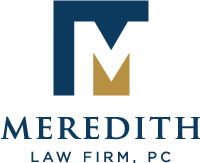Trust & Estate Administration
Trust & Estate Administration
The loss of a loved one is a difficult thing. Not only are you dealing with their death, but now you have to navigate this legal arena which can be quite daunting. We are here to assist you in this process so the legacy of your loved ones can be fulfilled.
In its simplified form, Probate is the process of transferring assets that were owned by the person who died (the decedent) to his or her heirs or beneficiaries. In Texas there are some very good laws and methods which make it a fairly simple process.
Here are a few articles that explain this process in a little more detail.
What Is Probate And How Does It Work?
In Texas, the probate process is relatively easy. This is because in most cases, the Court will order Independent Administration. This means there is limited court involvement and the Executor is free to do his or her job without being under close supervision of the Court. In an Independent Administration, there is one, very short, court hearing and minimal paperwork that will need to be filed with the Court.
At the hearing the Judge will do three things:
1. Admit the Will to Probate – This means the Judge will hear testimony from the Witness, who is ordinarily, but does not have to be, the Executor named in the Will. This testimony deals with the facts of the Decedent’s death, facts about the Will such as proper execution and whether or not the Decedent named an Executor. Once the Judge admits the Will to probate, that means this Will is the one that will be followed by the Executor and the Court.
2. Appoint an Executor/Administrator – This is the person who will carry out the Decedent’s directions as they are written in the Will. The Executor has three main jobs:
Collect or account for all of the assets in the Decedent’s estate;
Pay any outstanding debts owed by the Decedent; and
Distribute the remainder of the assets according to the directions in the Decedent’s Will.
There are other miscellaneous jobs that the Executor that may, or may not, need to do depending on the specific needs and assets. For example, the Executor may need to:
Open a bank account in the name of the Estate if there is money that will be paid to the Decedent;
Locate heirs;
Resolve disputes;
File tax returns (final 1040, a 1041 for money paid to the Decedent’s estate, and a 706 for estate tax);
Close accounts (bank, paypal, ebay, facebook, etc.); and
Determine Estate assets and values.
3. Issue Letters Testamentary/Administration – These letters are the official documents issued by the Court naming the Executor and declaring that he or she has been appointed by the Court to handle the Decedent’s affairs and transfer assets accordingly.
It is important to point out that only “probate assets” will need to go through the probate process. Therefore, if the Decedent died owning no assets that need to be transferred through the change of a title, then probate is not necessary. This is commonly the case when a person did not own a home and all of their assets passed by right of survivorship and/or beneficiary designation. In my next post I will discuss various ways to avoid probate.
How Can I Avoid Probate?
Therfore, it is fitting to discuss ways that individuals and couples can avoid Probate. There are four common ways that we can structure your estate plan to avoid probate. Assets held under these strategies are considered “non-probate assets” and therefore bypass probate.
1. Joint Tenancy With Right of Survivorship
Under property law, if a piece of property or a personal asset is held with another person or persons and there is a “right of survivorship”, when one person passes away the other owner or owners simply assume the deceased person’s interest. For example, if George, Paul, Ringo, and Jon own a yellow submarine as joint tenants with right of survivorship, then each person owns ¼ of the submarine. If Jon passes away, his interest is split between the remaining owners. Therefore, George, Paul, and Ringo now each own 1/3 of the yellow submarine.
2. Designated Beneficiary
For many people, their largest assets, such as life insurance policies, IRAs, Mutual Funds, 401(k), or other qualified plans are will not pass under their Will. This is because these assets will pass to the beneficiary(ies) named on the Beneficiary Designation form. This form is a contract between the account or policy owner and the insurance company or retirement plan custodian. The contract says that upon the account or policy owner’s death, the company or custodian agrees to pay the death benefit or balance of the account to those the Decedent named as beneficiaries.
Typically, the Decedent has named a primary beneficiary and one or more contingent beneficiaries. The contingent/secondary beneficiary(ies) will not receive anything unless the primary beneficiary is also deceased at the time payment is to be made. However, if the Decedent has named the “Estate” as a primary beneficiary, then the insurance company or custodian will pay the funds to the Estate of the Decedent. This means, the insurance policy or account has just become a probate assets and probate will be necessary.
3. POD (Pay-On-Death) or TOD (Transfer-On-Death) Accounts
Some banks and financial institutions allow accounts to have a POD or TOD designation on them. For example, assume Tom Client has an account with a POD designation on it, and he names his wife, Cindy, as the POD designee. Upon Tom’s death, the balance of the account will pay to Cindy and she now owns any remaining funds in the account.
4. Revocable Living Trust
This is the most popular method of avoiding probate. Here, the Grantor of the trust is able to re-title his assets in the name of their revocable trust. Now since the Trust owns all of the assets, upon the Grantor’s death, probate is not necessary because the trustee of the trust is managing the assets according to the terms of the trust.
If you have further questions, visit our FAQ page here.


